Toyota supports project to develop new hydrogen refuelling pumps
The RHeaDHy project (Refuelling Heavy Duty with very High flow Hydrogen), funded by the European Union, aims to develop high-performance hydrogen refuelling stations for heavy-duty commercial vehicles. The project focuses on the development and testing of new processes for refuelling 700-bar hydrogen trucks with 100 kilograms of hydrogen within ten minutes. As part of this project, the French energy group Engie (formerly GDF Suez) is working on new hydrogen refuelling systems together with Hydrogen Refuelling Solutions (HRS), a company specialising in the equipment of hydrogen refuelling stations.
One of the challenges in expanding the hydrogen supply is the need for refuelling pumps that can refuel both light and heavy fuel cell vehicles in a short time. The new twin-mid-flow technology offers a solution to this by using a fuelling nozzle with a higher flow rate. In this way, heavy commercial vehicles can be refuelled in less than ten minutes and light commercial vehicles in less than five minutes at the same hydrogen dispenser. This eliminates the need for different types of dispensers at a refuelling station.
Thanks to the new technology, a 40-tonne truck can be refuelled in just eight minutes for a range of 600 kilometres, and twelve minutes for a range of 900 kilometres. For refuelling station operators, the new technology means significantly lower installation costs for hydrogen pumps.
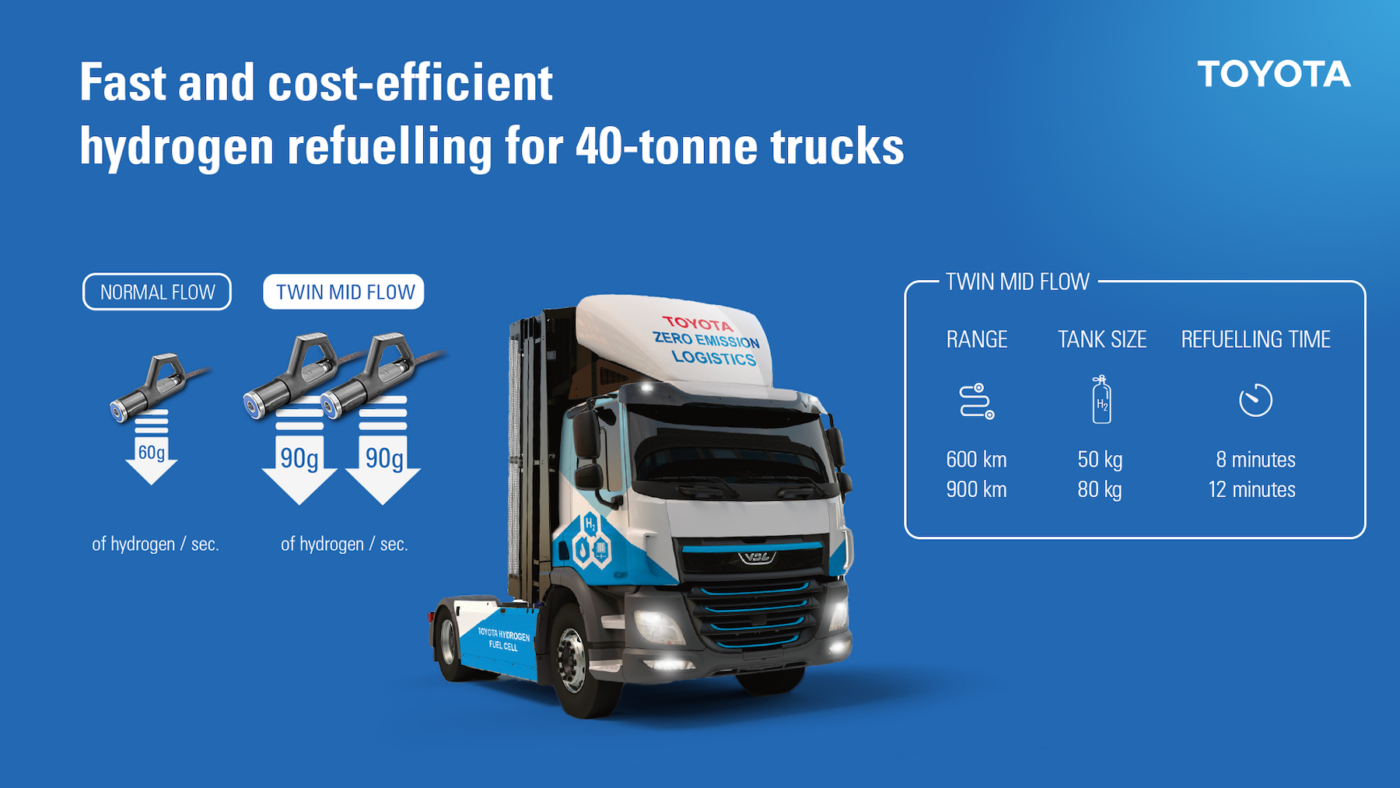
As part of the collaboration, Toyota is providing a test bench and a truck equipped with the new twin-mid-flow technology. The partners Hydrogen Refuelling Solutions and Engie are developing compatible hydrogen refuelling stations for this purpose, which will be tested from Q4 2025 as part of the RHeaDHy project.
“To contribute to the growth of hydrogen ecosystems, Toyota is already working with business partners who are innovating a wide range of zero carbon emission applications using our advanced fuel cell systems,” said Thiebault Paquet, Head of Fuel Cell Business at Toyota Motor Europe. “Development of the Twin Mid Flow Technology is a next step in our effort to stimulate the growth of hydrogen ecosystems. We are excited about this new partnership.”
“This strategic partnership with Toyota Motor Europe and ENGIE marks a decisive step in hydrogen refuelling infrastructure innovation,” says Hassen Rachedi, CEO and founder of Hydrogen Refuelling Solutions. “By combining our expertise, we will accelerate the roll-out of hydrogen stations across Europe and the world, reducing refuelling times and making stations more accessible and cost-effective. Together, we are laying the foundations for a future in which hydrogen will play a central role in decarbonising transport worldwide.”
If the project is successful, the targets set by the EU Alternative Fuels Infrastructure Regulation (AFIR) can be achieved more quickly. According to the regulation, hydrogen refuelling stations are to be installed every 200 kilometres along the main routes of the trans-European transport network (TEN-T) by 2030.
Toyota has a fuel cell car on the market in Europe with the Mirai and is supporting BMW with its technology for the first series-produced fuel cell car, which is due to be launched in 2028. In contrast, Toyota is not active in the truck sector in Europe and therefore does not have a fuel cell truck on the market. However, the Dutch commercial vehicle manufacturer VDL entered into a cooperation with Toyota almost two years ago to utilise Toyota fuel cells in trucks. As the VDL model can be seen in the infographic above, it is likely that this will also be used for the RHeaDHy project.

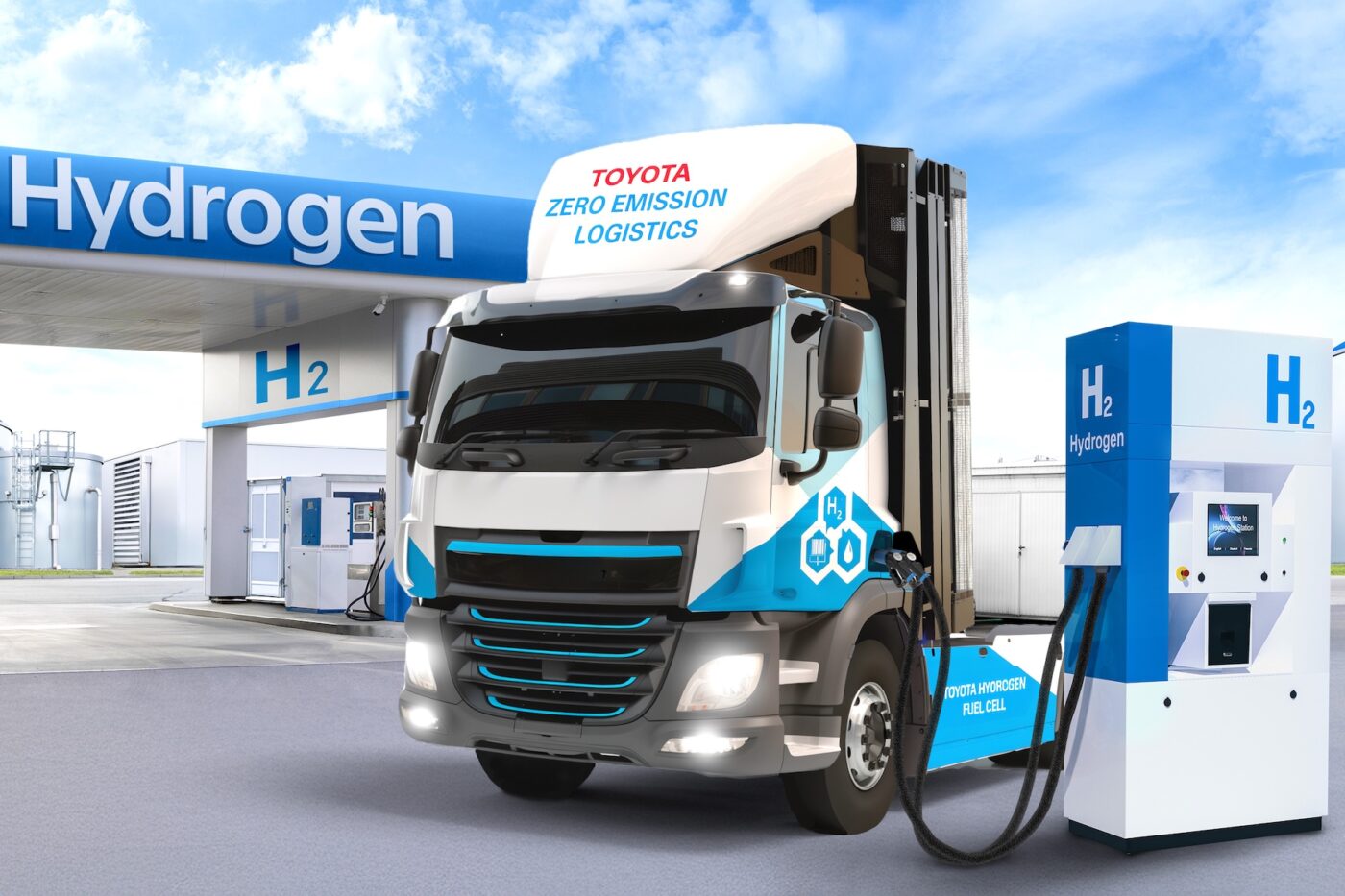
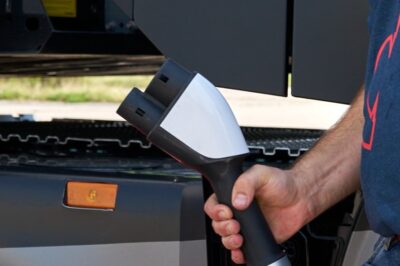
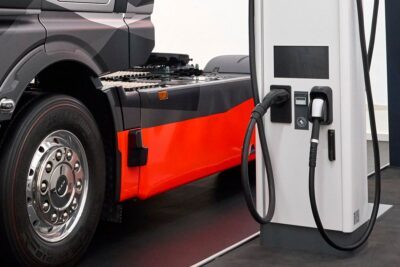
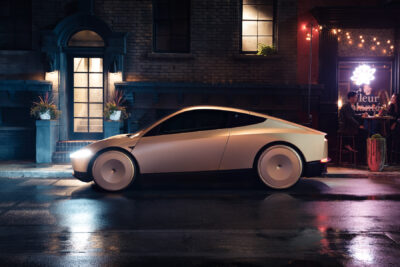
0 Comments